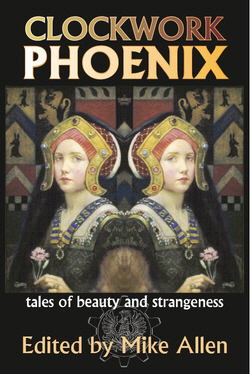Featured Poem • November 2015
Artifacts
Judith Roney
He died, of course, after five years in the nursing home, a neighbor I never met, his unoccupied house reticent at the end of my street. His name was Artie—a WWII decorated veteran, a merchant marine—who’d made it to ninety-five, preceded in death by a wife and a son. How easy we evanesce, withdraw into small spaces archived like old data zip-filed away to a form of compression. The house was soon sold—stripped of its vintage façade of brick, bushes hacked and uprooted, strewn next to the street. I dragged the bougainvillea home; pruned and planted, the bush took root; tissue paper blooms now cover neglected limbs. Workers filled a dumpster haphazard with what was left, where parts of him linger—his stereo, a 1972 V-M record player, on the turntable the black vinyl’s label reads: “To You Sweetheart, Aloha,” fingerprints are still on the record. Set on my dining room I see the record was warped from the sun; I find the song online and listen and see— Artie is as he was hip-sway dancing in his yard under the palm trees, till the needle finds its end, Artie’s ashes afloat on an unassailable sea.
 Judith Roney has created and taught writing workshops for adults challenged by mental illness in conjunction with the University of Central Florida’s Literary Arts Partnership. Her fiction, essays, and poetry have appeared in numerous publications. Her poetry collection, “According to the Gospel of Haunted Women,” received the 2015 Pioneer Prize, and a memoir piece, “My Nickname was Frankenstein,” is nominated for a Pushcart Prize. She confesses to an obsession with the archaic and misunderstood, dead relatives, and collects vintage religious artifacts and creepy dolls. Currently she teaches poetry at the University of Central Florida while pursuing a doctoral degree in texts and technologies.
Judith Roney has created and taught writing workshops for adults challenged by mental illness in conjunction with the University of Central Florida’s Literary Arts Partnership. Her fiction, essays, and poetry have appeared in numerous publications. Her poetry collection, “According to the Gospel of Haunted Women,” received the 2015 Pioneer Prize, and a memoir piece, “My Nickname was Frankenstein,” is nominated for a Pushcart Prize. She confesses to an obsession with the archaic and misunderstood, dead relatives, and collects vintage religious artifacts and creepy dolls. Currently she teaches poetry at the University of Central Florida while pursuing a doctoral degree in texts and technologies.
She tells us that “‘Artifacts’ came into being over a period of about one year. The home at the end of my street was owned by a man who had already been in a nursing home for several years when we purchased our home. I never met him. He died, and his out-of-state daughter sold the 1960s-era home, and the purchaser gutted the place. A dumpster was filled with ‘stuff’ left in the house; even bushes were dug up and tossed to the street. I dragged home a bougainvillea, which now blooms profusely in my own yard, and pulled an old table-top record player from the dumpster. It still had a record with a readable label on the turntable, albeit the wax disk had become warped from the sun.
“I became more curious about the old man I’d never met. I’ve always been curious about people, and our individual histories; as an undergraduate I completed a minor in anthropology. I question what becomes of ‘us’ after we’ve made the grand final exit.
“I discovered Arthur Hunter (‘Artie’ to the neighbors who’d known him) was a WWII veteran, had been a merchant marine, and had lost his wife and a son several years earlier. I even found a photo of Artie and his wife, in their backyard, online. The poem really took shape when I found a YouTube of the record online, the last one, I’m sure, Artie listened to in his beloved Florida home: ‘To You Sweetheart, Aloha.’”
![]()
If you’ve enjoyed what you’ve read, please consider pitching in to keep us going. Your donation goes toward future content.
![]()















